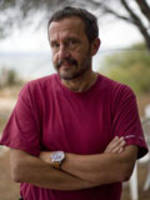
- Vladimir Biti (Universität Wien)
TWO CONCEPTS OF LITERARY BILDUNG: ENLIGHTENMENT AND ROMANTICISM
German Romanticists opposed the literary identification power of the French Enlightenment as an inadmissible tutelage replacing it by the possibly broadest democratic participation of nations in the world literary community. If mankind was to be established, then, in their vision, a self-regulating ensemble made up of a great variety of cooperating self-regulating smaller wholes was the only viable mode for this to take place. Mankind was expected to unfold from within and come from below instead of being, as in the cosmopolitan model of the French Republic of Letters, imposed from above. This was clearly meant as an alternative vision of democracy.
Friedrich Schlegel´s transfer of literary performance onto the inward of the self is usually considered to have established the principal difference between the Romanticist and Enlightenment idea of literary Bildung. Following Herder´s redefinition of language from an instrument of external communication into a repository of an overall way of thinking (Denkart) passed on and treasured by previous generations, Romanticists relegate literature from the collective public sphere of education onto the private individual domain of formation. Even though they engage the same concept of Bildung to designate the proper performance of literature, in the Romanticist use this concept gradually shifts its meaning from “cultivating or educating the others” to “constituting or building the self”.
However, as I will try to demonstrate, these two ideas do not just exclude but simultaneously imply each other forming an overlapping and contradictory constellation of forces. They maintain a much more complex mutual relationship than it has been hitherto acknowledged because of which conventional association of the Enlightenment idea of literary Bildung with literary theory on the one hand and the Romanticist idea of literary Bildung with literary history on the other represents an oversimplification with misleading consequences. Keeping in mind that the interplay between these two concepts marks out the entire intellectual horizon of European modernity, an in-depth research into the nature of this interplay seems to be a task of uttermost importance.

Universität Wien
Spitalgasse 2, Hof 3
1090 Wien
T: +43-1-4277-428 01 / +43-1-4277-428 91
F: +43-1-4277-9 428




